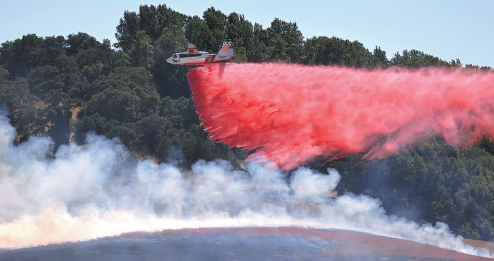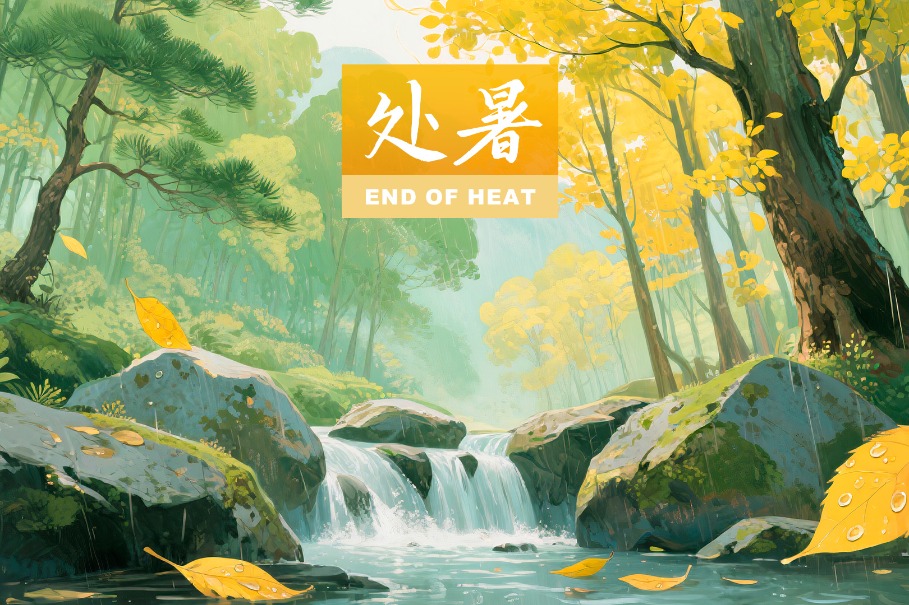Scientist calls raging wildfires the 'new abnormal'

WASHINGTON — It was a smell that invoked a memory. Both for Emily Kuchlbauer in North Carolina and Ryan Bomba in Chicago. It was smoke from wildfires, the odor of an increasingly hot and occasionally on-fire world.
Kuchlbauer had flashbacks about the soot coating her car three years ago when she was a college graduate in San Diego. Bomba had a strange feeling of deja vu from San Francisco, where the air was so thick with smoke that people had to wear masks. They assumed they had left wildfire worries behind in California, but a Canada that is burning brought one of the more visceral effects of climate change to places that once seemed immune.
"It's been a very apocalyptic feeling, because in California the dialogue is like, 'Oh, it's normal. This is just what happens on the West Coast', but it's very much not normal here," Kuchlbauer said.
As Earth's climate continues to change from heat-trapping gases spewed into the air, ever fewer people are out of reach from the billowing and deadly fingers of wildfire smoke, scientists say. Already wildfires are consuming three times more of the United States and Canada each year than in the 1980s, and studies predict fire and smoke to worsen.
While many people exposed to bad air may be asking themselves if this is a "new normal", several scientists told The Associated Press they specifically reject any such idea because the phrase makes it sound like the world has changed to a new and steady pattern of extreme events.
"Is this a new normal? No, it's a new abnormal," University of Pennsylvania climate scientist Michael Mann said. "It continues to get worse. If we continue to warm the planet, we don't settle into some new state. It's an ever-moving baseline of worse and worse."
It is bad that perhaps the "wildfire" also needs to be rethought, suggested Woodwell Climate Research Center senior scientist Jennifer Francis.
"We can't really call them wildfires anymore," Francis said.
"To some extent they're just not, they're not wild. They're not natural anymore. We are just making them more likely. We're making them more intense."
Several scientists said that the problem of smoke and wildfires will progressively worsen until the world significantly reduces greenhouse gas emissions, which has not happened despite years of international negotiations and lofty goals.
Fires in North America are generally getting worse, burning more land. Even before July, traditionally the busiest fire month for the country, Canada has set a record for most area burned with 81,409 square kilometers, which is nearly 15 percent higher than the old record.
"A year like this could happen with or without climate change, but warming temperatures just made it a lot more probable," said A. Park Williams, a UCLA bioclimatologist who studies fire and water.
"We're seeing, especially across the West, big increases in smoke exposure and reduction in air quality that are attributable to increase in fire activity."
Numerous studies have linked climate change to increases in North American fires because global warming is increasing extreme weather, especially drought and mostly in the West.
Agencies Via Xinhua

Today's Top News
- China, Japan, ROK urgently need an FTA
- From humanoids to parallel intelligence
- Shared wartime history unites nations, envoy says
- Mutual trust reaffirmed in visit
- 12 dead, 4 missing after bridge collapses in Qinghai
- Steps taken to boost domestic consumption






























